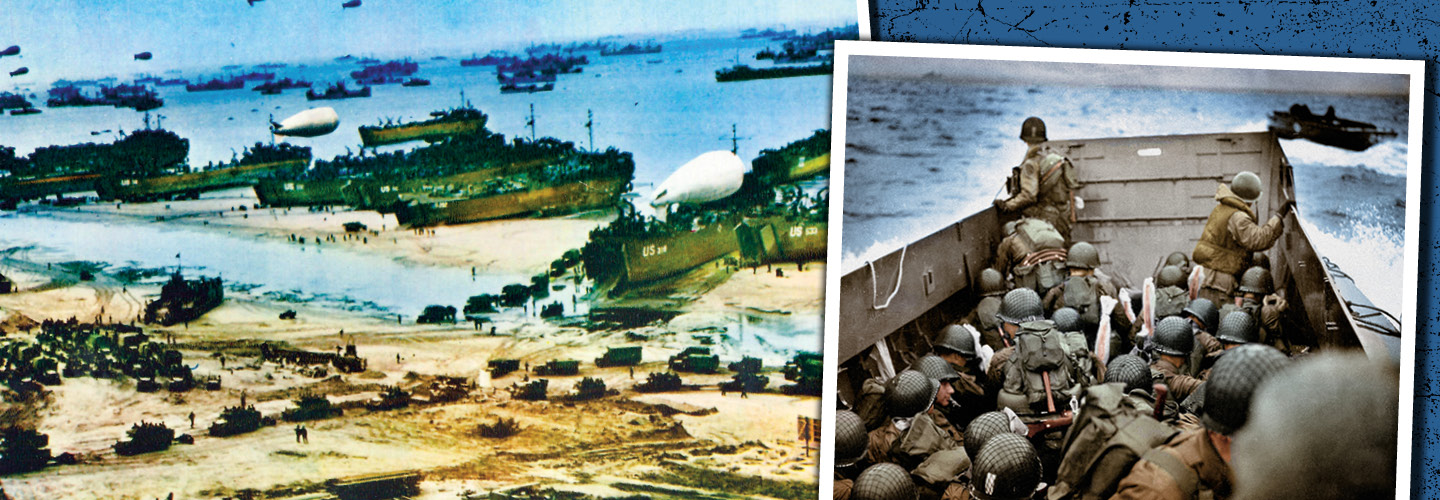Joseph Argenzio struggled onto the beach, chaos and death all around him.
The men in front of him had been killed by German machine gun fire as soon as the landing craft dropped its ramp. Argenzio had jumped over the side and lost his helmet and ammunition in the water.
“Finally, I made it to a point where I figured I could run, and I did,” he recalled years later. “I zigzagged, slipping on these wet stones and tripping and falling. There were guys getting hit all around me and going down and screaming and yelling and yelling for medics.”
Argenzio, a 16-year-old soldier from Brooklyn, New York, was among the first wave of Allied troops landing on Omaha Beach on June 6, 1944, as part of the D-Day invasion of France.
For four years, much of Europe had been occupied by Nazi troops, and the Allied landings in Normandy were the first push to liberate France—and ultimately the rest of occupied Europe—from Nazi Germany.
This spring marks 80 years since the D-Day invasion, which is remembered
as a key turning point in World War II.
“D-Day announced to everybody on the continent that the Nazis couldn’t win,” says Jay Winter, an emeritus professor of history at Yale University. “This was the moment that victory becomes foreseeable.”
Joseph Argenzio crawled onto the beach. He was surrounded by chaos and death.
As soon as the landing craft dropped its ramp, German machine gun fire started. The men in front of him had been killed. Argenzio had jumped over the side of the boat. He lost his helmet and bullets in the water.
“Finally, I made it to a point where I figured I could run, and I did,” he recalled years later. “I zigzagged, slipping on these wet stones and tripping and falling. There were guys getting hit all around me and going down and screaming and yelling and yelling for medics.”
Argenzio was a 16-year-old soldier from Brooklyn, New York. He was among the first group of Allied troops landing on Omaha Beach on June 6, 1944. This mission was part of the D-Day invasion of France.
For four years, Nazi troops occupied much of Europe. The Allies made a first push to free France by landing in Normandy. It was the first step to ultimately free the rest of occupied Europe.
This spring marks 80 years since the D-Day invasion. It is seen as an important turning point in World War II.
“D-Day announced to everybody on the continent that the Nazis couldn’t win,” says Jay Winter, an emeritus professor of history at Yale University. “This was the moment that victory becomes foreseeable.”

